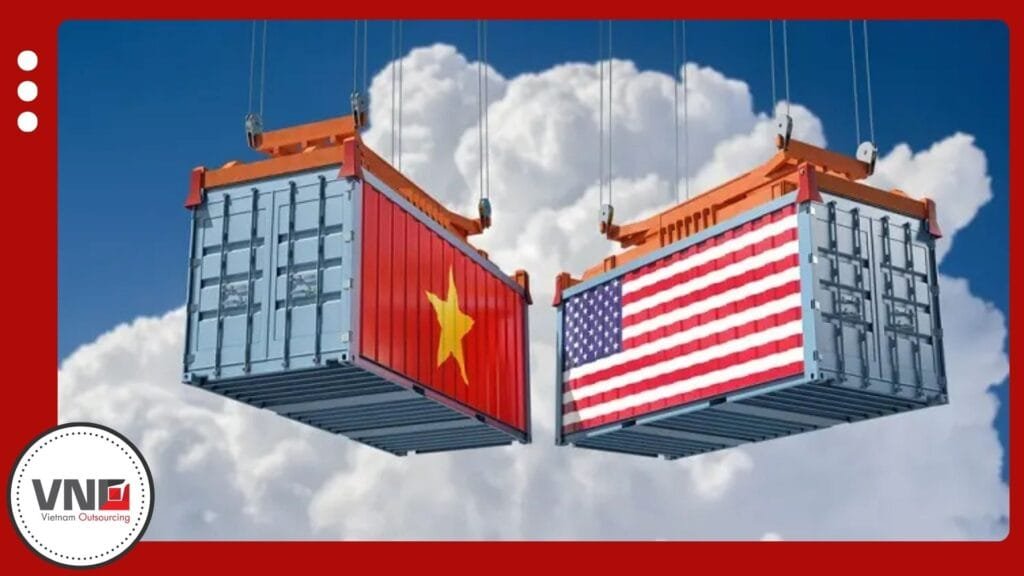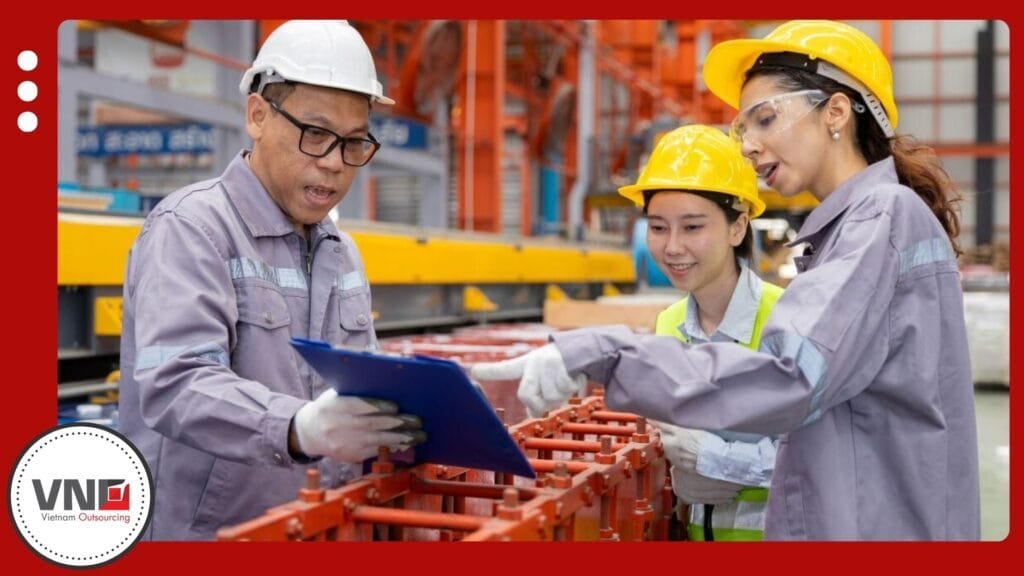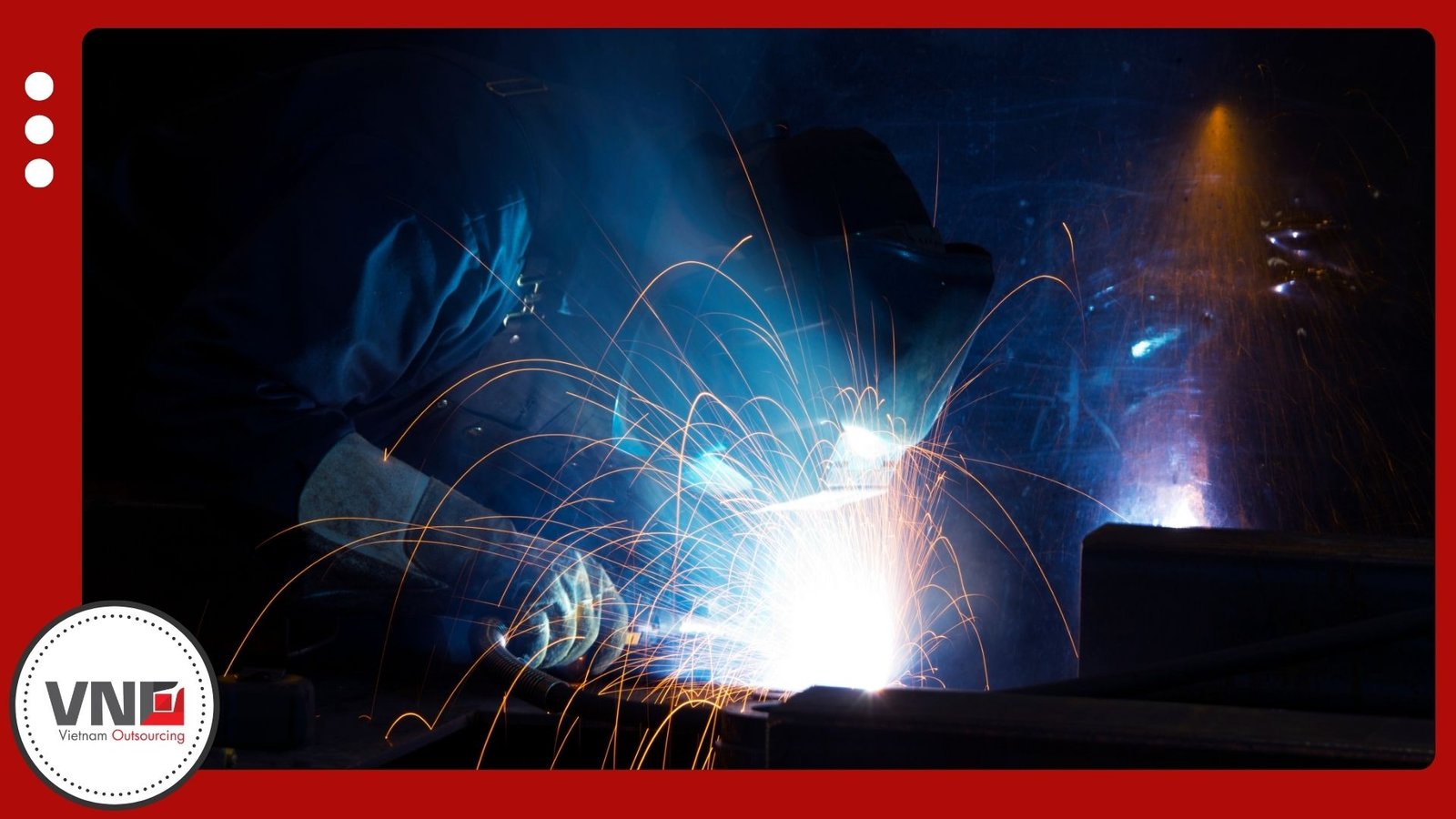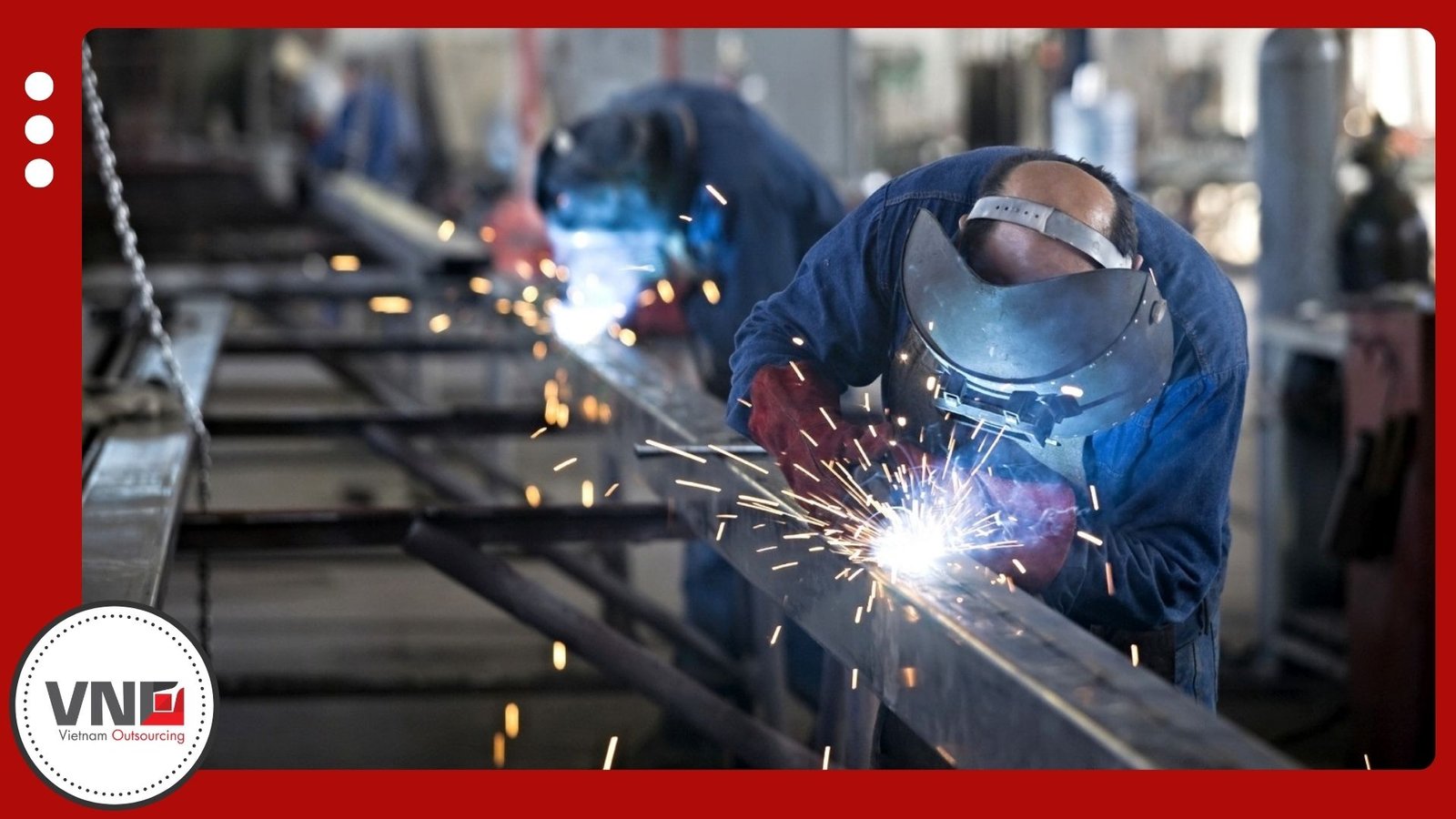As tariffs reshape trade, Vietnam’s engineering sector faces new demands beyond cost. Traceability, compliance, and trust are now the defining factors in supply chains. With government reforms and VNO’s expertise, buyers can navigate these changes with confidence.
A New Era for Vietnam Manufacturing
Trade with Vietnam is evolving. While headlines highlight tariffs—20% on most goods and 40% on transshipped items—the real challenge lies in compliance and transparent sourcing. For U.S. and European buyers, success is no longer based only on price. It depends on trust.

Beyond Tariffs: Compliance Becomes Key
Tariffs are only one hurdle. Buyers must also meet rising standards, including:
- ERP systems to track production and materials
- Green certifications to satisfy U.S. and EU rules
- Clear origin documentation to prove goods are truly made in Vietnam
Why Traceability Matters in Engineering Supply Chains
Mechanical components and machinery frames rely on complex networks of suppliers. A single misstep can expose shipments to penalties or 40% tariffs under transshipment rules. Transparent suppliers with verifiable systems are now the most valued partners.
Vietnam’s Government Actions
Vietnam’s officials have acted quickly to strengthen the credibility of the “Made in Vietnam” label. Measures include:
- Stricter rules of origin
- Incentives for ERP and traceability adoption
- Cross-ministerial talks with the U.S. on compliance frameworks
- Training and funding for supporting industries in tooling and sub-assemblies
Supporting Industries Drive Growth
Vietnam counts more than 6,000 supporting-industry firms, though only 15% meet full localization and compliance today. New reforms are boosting standards, expanding domestic production, and reducing reliance on Chinese inputs.
The Buyer’s Advantage: Moving Early
Early movers who secure compliant suppliers will be better positioned as standards tighten. Factories with ERP systems, traceability, and green certification will reach capacity fast.
VNO: Your Compliance Partner
VNO bridges global requirements with Vietnam Supply Chains. Services include:
- Pre-vetted factories with ERP and traceability tools
- Supplier audits for ISO, RoHS, and ESG benchmarks
- Real-time monitoring of HS codes and rules of origin
- Proven record of 99.62% quality acceptance and 99.8% on-time delivery
Conclusion: Vietnam’s Engineering Evolves with Trust
Tariffs may dominate the news, but the deeper story is Vietnam’s transformation. The focus is shifting toward compliance, traceability, and transparent supply chains. With reforms underway and VNO’s guidance, buyers gain assurance that every shipment from Vietnam’s engineering sector meets global standards. You might also want to know more about Compliance & Supply Chain in Vietnam.






